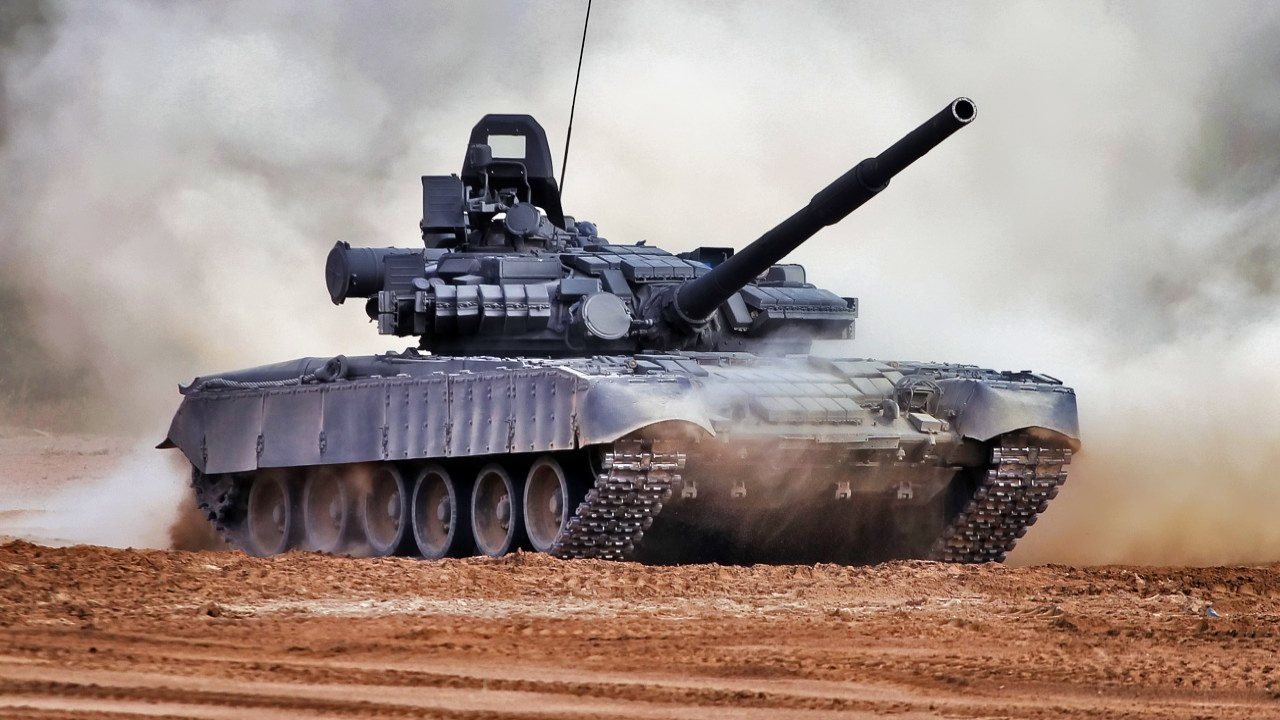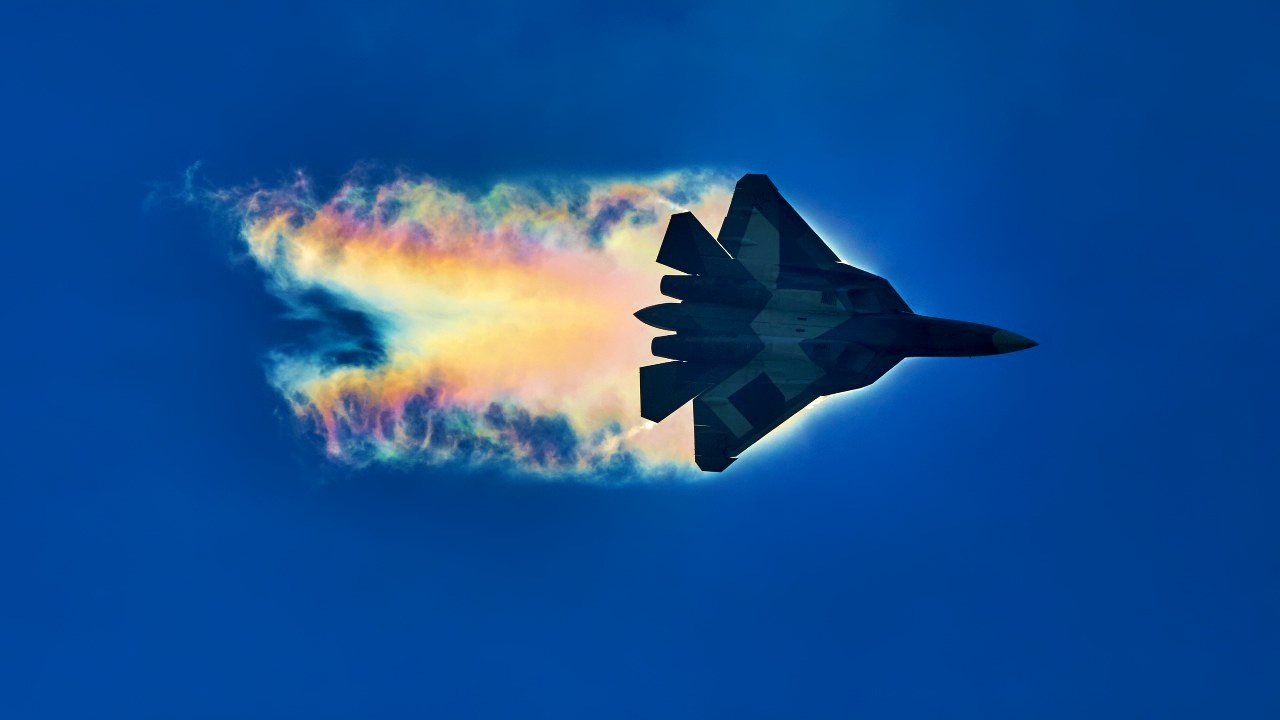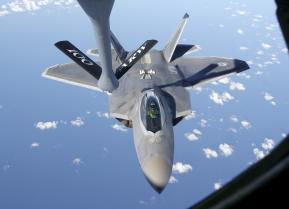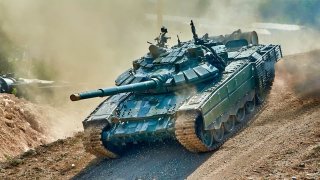Crimea: Can Ukraine Retake This Occupied Land from the Russian Military?
Ukrainian President Volodymyr Zelensky and the Ukrainian military leadership have repeatedly stated that their strategic goal is to liberate all Ukrainian land under Russian occupation before the war is over - and that means Crimea.
It was in Crimea where the current war in Ukraine began.
Starting in February 2014, Russian special operators and Wagner Group mercenaries—the infamous “Little Green Men”—invaded the Crimean Peninsula and captured key government functions.
Soon thereafter, conventional Russian forces followed, and the illegal annexation of Crimea was complete.
In the years that followed, Ukraine has sought to liberate the annexed Crimea Peninsula. Moscow’s invasion presented the perfect opportunity.
The Push for Crimea
Ukrainian President Volodymyr Zelensky and the Ukrainian military leadership have repeatedly stated that their strategic goal is to liberate all Ukrainian land under Russian occupation before the war is over.
For now, the Ukrainian people seem to be behind this vision. However, the operational and tactical considerations don’t guarantee success.
To get to Crimea, the Ukrainian forces would have first to do what they failed to do over the summer: achieve an operational breakthrough in southeastern Ukraine.
With limited fighting windows available (May-November and December-March) and the frequent large-scale offensive of the Russian forces, it would likely take Kyiv a year or more in the current rate of fighting to reach Crimea.
Entry to the Crimean Peninsula is governed by a small corridor of land. When, in the summer, the Ukrainian military started making progress in southern Ukraine in its large-scale counteroffensive, the Russian military started barricading that small piece of land that leads into Crimea.
Judging from the difficulty the Ukrainians had in penetrating the extensive Russian defensive lines, it would be hard to punch through into Crimea.
To be sure, Crimea is a Peninsula, and the surrounding water offers opportunities for amphibious operations. Ukraine has already been working with the British Royal Marines Commandos to establish an amphibious commando force. But without air and naval superiority, a large-scale amphibious operation necessary to distract or create a second front in Crimea would be pure folly.
With additional Western security aid, including more fighter jets, long-range munitions, air defense systems, and better training, the Ukrainian forces would have a better chance of breaking the Russian defenses and entering Crimea.
The View from the Kremlin on Crimea
But the Kremlin won’t let Crimea go without a fight—and a significant fight, for that matter.
In the ten years the Crimean Peninsula has been under Russian occupation, the Kremlin has turned it into a military hub. Anti-access/Aerial Defense (A2/AD) systems, fighter jets, and warships have turned Crimea into an “unsinkable aircraft carrier” that protects Russia from the south. There is a lot at stake in Crimea, and the Russian military will throw everything it has to ensure that it doesn’t fall back into Ukrainian hands. Indeed, if there is a credible scenario of the Kremlin employing tactical nuclear weapons in the war, it would likely be if Crimea was under direct threat of being lost.

Even though the dismantling of the Wagner Group private military company and the assassination of its leader, Yevgeny Prigozhin, reaffirmed the power of Russian President Vladimir Putin within Russia, a potential loss of Crimea would likely create additional woes for the Russian leader. The Kremlin’s “special military operation” in Ukraine sought to replace the Ukrainian leadership and incorporate parts of Ukraine into Russia.

As the war has turned out, Crimea is the real prize. The Russian military leadership doesn’t entertain notions of achieving the initial strategic goal of capturing Kyiv. Similarly, Kyiv isn’t looking to drive up to Moscow.
No, it is all about Crimea and the territory that leads to it in southeastern Ukraine.
About the Author
Stavros Atlamazoglou is a seasoned defense journalist specializing in special operations and a Hellenic Army veteran (national service with the 575th Marine Battalion and Army HQ). He holds a BA from Johns Hopkins University and an MA from the Johns Hopkins School of Advanced International Studies (SAIS). His work has been featured in Business Insider, Sandboxx, and SOFREP. Email the Author: [email protected].
All images are from Shutterstock.


